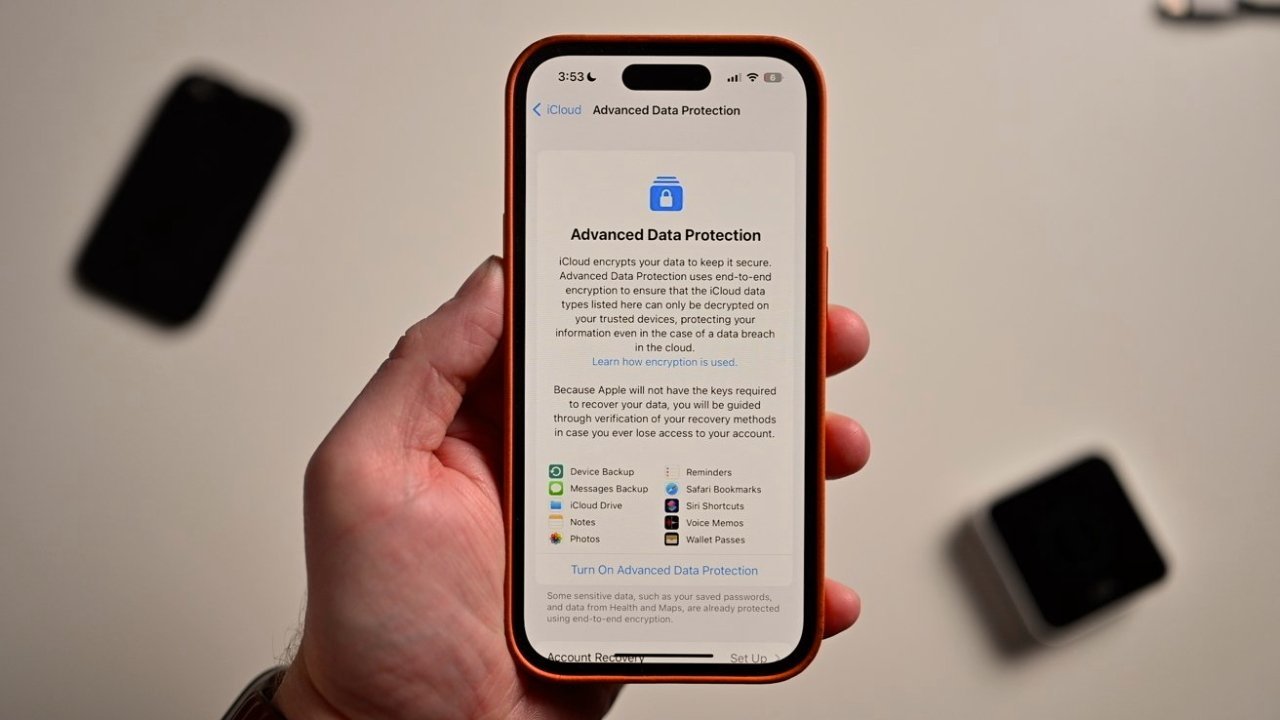Apple's default apps are collecting user data even if users try disabling them, research from Aalto University claims, with it being an almost impossible task to properly accomplish.
Apple prides itself on making privacy a key reason to own an iPhone and its other products. It has privacy policies like App Tracking Transparency that can limit the amount of data collected by third-party apps installed by users.
However, a study by Aalto University that examined default apps and services included as part of a new iPhone found Apple's own apps can feed back a lot of data to Apple. Also, that data was hard to prevent from being collected in the first place.
The researchers analyzed eight "apps," specifically Safari, Siri, iMessage, FaceTime, and Find My, as well as settings for Family Sharing, Location Services, and Touch ID. Publicly-available privacy-related information was collected from technical documentation and privacy policies for analysis.
Users "don't know what is going on" due to the way the user interface is designed, said associate professor Janne Lindqvist.
One example is that users are given the option to enable Siri. But the option only enables whether Siri's voice control is used, and that Siri still collects data in the background regardless of the user's choice.
Users have to go into the settings and make changes there to stop the behavior, which the prompt seemingly offers without actually performing.
A confusing affair
The instructions to restrict data access were deemed "very complex and confusing" by the report, with steps scattered in various online documents without any clear direction provided. The instructions also didn't provide all the required steps, and declined to explain how any collected data was processed by Apple.
To try and prove that it was difficult for users, volunteers were interviewed and asked to change the settings. None of the participants managed to follow all of the instructions to prevent the data collection, but they were able to take steps in the right direction.
There were also complaints that users weren't given feedback on whether they succeed to disable data collection while dealing with privacy settings. Study participants allegedly went backwards in the process on occasion, and sometimes resorted to scrolling randomly for inspiration.
A collection mystery
While stopping Apple's own data collection is difficult, researchers were also unable to find out exactly what Apple did with collected data in many cases.
After failing to find definitive answers from public documents, Lindqvist proposed that it was likely the data would be used to train machine-learning systems for services like Siri, or to provide more personalized user experiences.
The professor offered that the seamless multi-device interactions users are accustomed to makes it hard to revert to a time of more limited data sharing with companies. Even so, Lindqvist believes Apple could do better in being clearer with customers about what data is collected and what it is used for.
To avoid data collection from some apps, the report offers that users could use third-party apps, which face tougher rules for data collection on iOS than what Apple itself abides by. This is something that critics of Apple have picked up on in the past, and has resulted in multiple lawsuits over the disparity.
Apple has previously been open in acknowledging that it collects data on its users to benefit its own services, and has done so for years. However, it often does so while minimizing the amount of data collected, and anonymizing the data where possible.
 Malcolm Owen
Malcolm Owen






-m.jpg)






 Charles Martin
Charles Martin


 Wesley Hilliard
Wesley Hilliard
 Stephen Silver
Stephen Silver
 William Gallagher
William Gallagher

 Marko Zivkovic
Marko Zivkovic








11 Comments
I just wish that they would improve parental controls.
Data that leaves your iPhone doesn’t mean it’s being “collected” by Apple. The article even mentions services like Continuity that require data to be transferred so devices can work together.
Further, data that leaves your device and goes to Apple doesn’t mean it’s being abused (like used for targeted ads).
There’s also a huge difference between data going to a company like Apple and someone like Meta or Google who make 98/80% of their revenue from targeted ads. They need your data to survive. To Apple your data isn’t even pocket change.
...spyOS...?
Short of sharing data with the government or law enforcement, the main and perhaps only reason to track data, is for understanding you as a customer better. When is the last time that you felt that something you did on an Apple app led to targeted ads? Now compare that to doing a Google search on ANY device or posting something on Instagram or Facebook... it is uncanny that all of a sudden you start seeing personalized ads. I may be naive on this I will admit. Apple should outline what they are tracking and for what, but I doubt it will be nefarious or to target you as a customer.